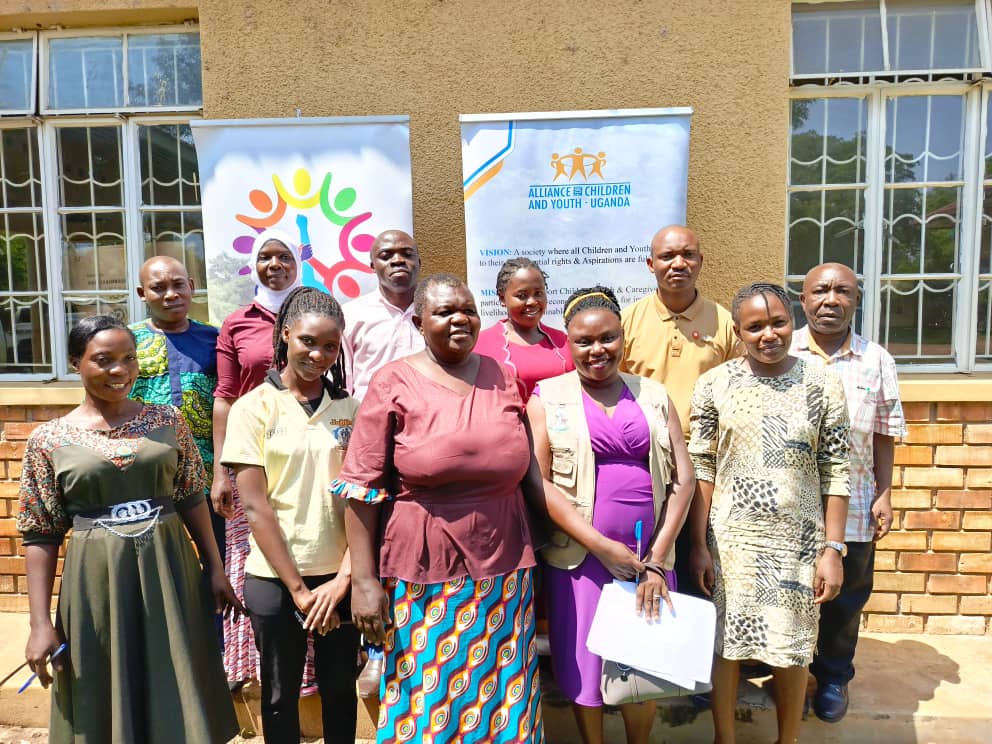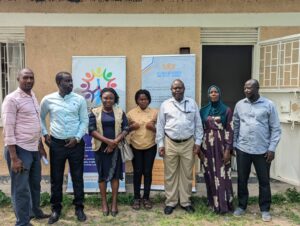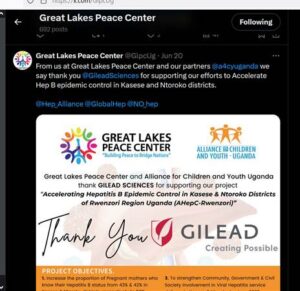Project name: Accelerating Hepatitis B epidemic control in the Kasese and Ntoroko districts of Rwenzori region
Scope of the project: Kasese and Ntoroko Districts
Time Frame: June 2024 to May 2025.

Project Summary: Although interventions for prevention and treatment of HBV exist like: early HBV birth dose, e.t.c. HBV prevalence and non-retention in care is still high among pregnant mothers in Ntoroko and Kasese districts. We are working with VHTs and health workers at 10 health facilities in two districts to increase testing of pregnant mothers and engage parliament committee on HBV.
This project is centered on accelerating Hepatitis B epidemic control in the two districts of Rwenzori region of western. It is designed on the premise that early detection, linkage and prioritization of scientifically proven intervention will lead to the elimination of the Hepatitis B virus among the general population with a special focus on pregnant mothers. It’s also hinged on the WHO’s global hepatitis endorsed by all WHO Member States, which aims to reduce new hepatitis infections by 90% and deaths by 65% between 2016 and 2030.
The project’s overall goal is to prevent new HBV infections and that persons who are already infected are tested; informed about their infection; and provided with high-quality counseling, care, and treatment.

The project’s specific objectives include;
1) Increase the proportion of pregnant mothers who know their Hepatitis B status from 43% and 42% in Kasese and Ntoroko districts respectively to 50% by June 2025.
2) Increase the proportion of HBV newly diagnosed pregnant enrolled in care and treatment from 23% and 10% in Kasese and Ntoroko districts by 10% respectively by June 2025.
3) To strengthen community, government, and civil society involvement in viral hepatitis service delivery in Kasese and Ntoroko by June 2025. At the end of the project, a) 50% of the pregnant mothers will have known HBV status. b) 33% and 23% of newly diagnosed pregnant mothers in Kasese and Ntoroko districts respectively enrolled in care and treatment. c) Improved community, government, and civil society involvement in viral hepatitis service delivery.
This project targets 9091 pregnant mothers as the primary beneficiaries and 2112 (2000 babies and 100 health workers) as indirect beneficiaries respectively.
This project is being implemented by three partners including the respective District local governments, Great Lakes Peace Center (GLPC) as the lead partner, and Alliance for Children and Youth-Uganda (A4CY-U)
 https://x.com/GlpcUg/status/1803661243363815504
https://x.com/GlpcUg/status/1803661243363815504
